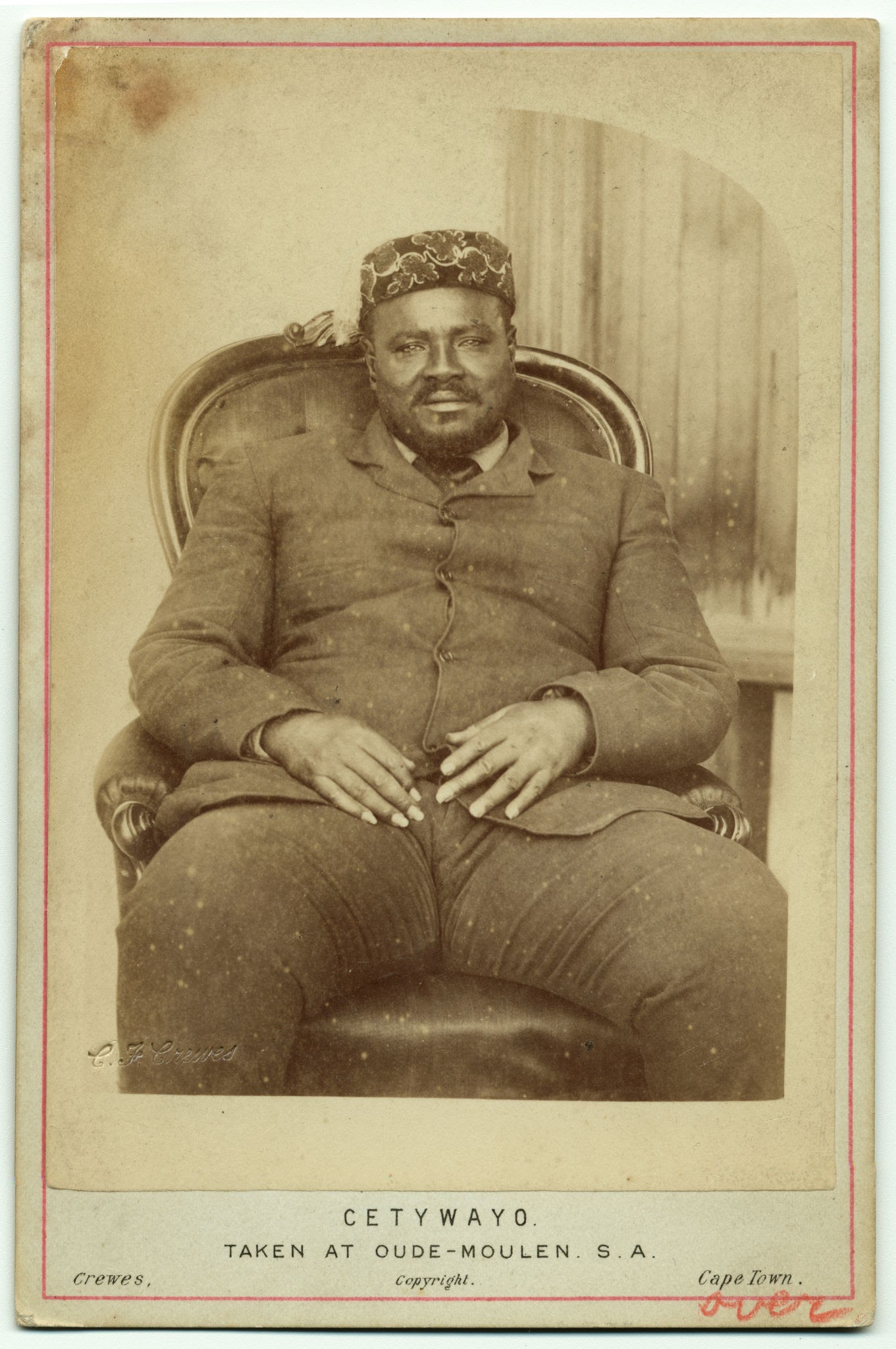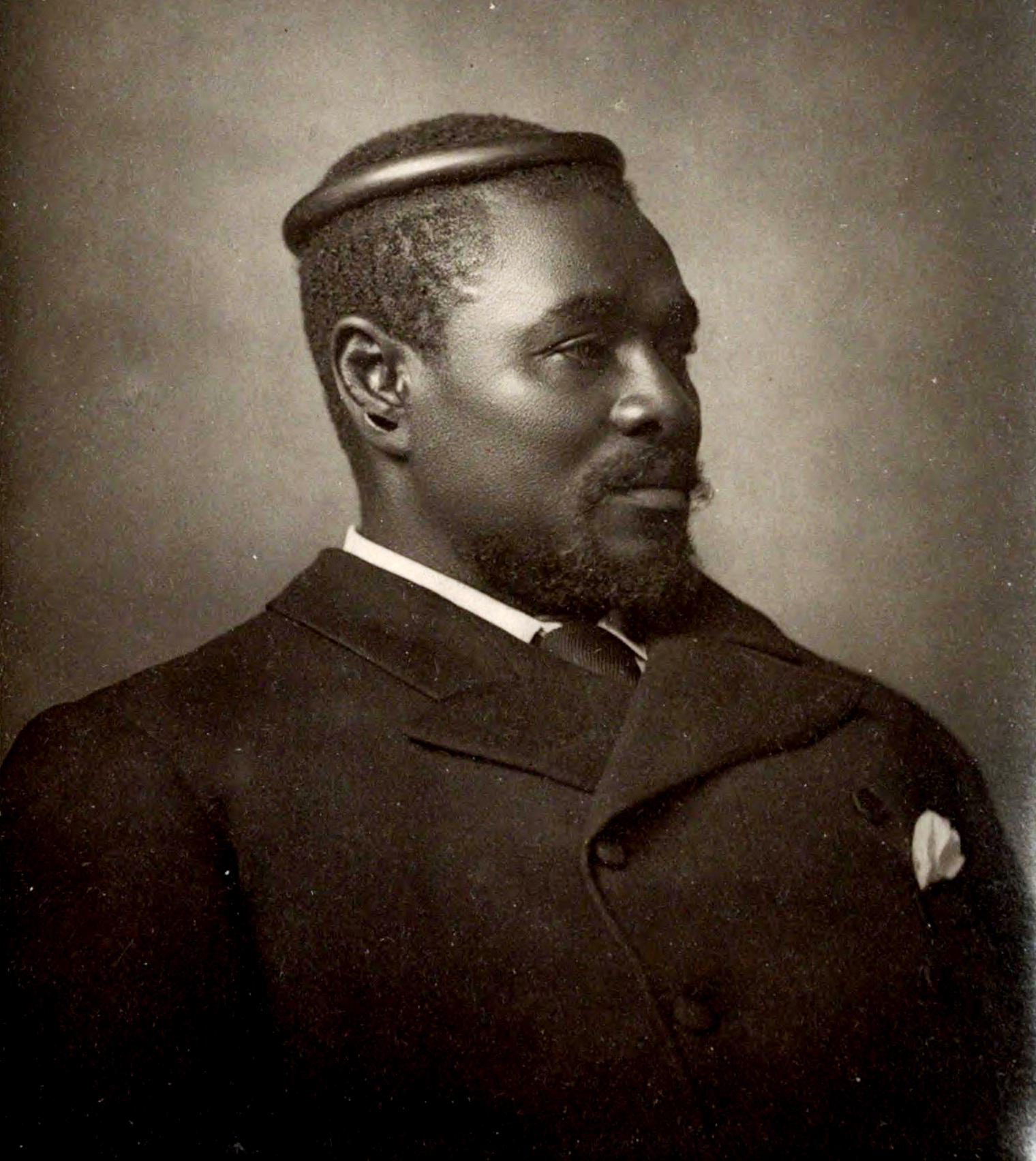 The tumultuous rise, reign, and fall of Cetshwayo, the last great Zulu King, remain a captivating chapter in the tapestry of South African history. From his birth in a troubled era to his death in suspicious circumstances, Cetshwayo's life was a testament to resilience, leadership, and the inescapable currents of change.
The tumultuous rise, reign, and fall of Cetshwayo, the last great Zulu King, remain a captivating chapter in the tapestry of South African history. From his birth in a troubled era to his death in suspicious circumstances, Cetshwayo's life was a testament to resilience, leadership, and the inescapable currents of change.
Born Amidst Turmoil
In 1826, Cetshwayo emerged into a world of strife at his father Mpande's kraal near Eshowe. The Zulu nation was under the iron grip of the formidable Shaka Zulu, Cetshwayo's uncle. But danger lurked close, as Mpande, serving Shaka, found himself embroiled in territorial conflicts and political assassinations.
The King's Heir Apparent
Following the assassination of King Shaka and the defeat of King Dingaan, Mpande ascended to the throne. Before becoming king, he had already introduced Cetshwayo to significant figures like the Boer Volksraad, signaling his intent. Cetshwayo's elevation wasn't just due to birthright; he was the child of a wife gifted to Mpande by Dingane, sealing his claim.
Rising Tensions and Power Struggles
While Mpande tried to balance the demands of British and Afrikaner settlers, Cetshwayo's influence grew. The Zulu nation, reeling from drought and famine, teetered on the brink of civil war. Factions sought opportunities, and soon, Cetshwayo found himself at odds with his brother, Mbuyazi. Their conflict culminated in the battle of Ndondakusuka, where Cetshwayo emerged victorious.
A Son's Ascendance
Though Cetshwayo effectively controlled the Zulu nation from the mid-1850s, his father remained the titular king. The young prince's influence wasn't without challenges. He faced threats from another brother, Umtonga, and navigated tense negotiations with the Boers over territorial disputes.
 The British Shadow Looms
The British Shadow Looms
By the late 1870s, the British, under Sir Bartle Frere, saw the powerful Zulu nation under Cetshwayo as a threat. Despite the Zulu king's initial attempts at diplomacy, war became inevitable. The Zulus experienced both victory at Isandlwana and crushing defeat at Ulundi.
Exile, Return, and Mysterious End
Following his capture, Cetshwayo was exiled to the Cape, only to return later to rule a fraction of his former kingdom. But old rivalries persisted, with Zibhebhu, a contender for Zulu leadership, posing a significant threat. Amidst internal strife, Cetshwayo, having sought refuge in Eshowe, met a sudden and suspicious end in 1884. While the exact circumstances of his death remain a subject of debate, the legacy he left behind endured.
A Legacy Remembered
Cetshwayo's death marked the end of an era, but his influence lingered. His son, Dinizulu, would later be proclaimed king, signaling the continuation of a royal lineage. Today, Cetshwayo's life serves as a testament to the complexities of leadership, diplomacy, and survival during one of the most transformative periods in South African history.
Sources/References:
SA History Org
Binns, C.T. (1963). The Last Zulu King: The Life and Death of Cetshwayo, London: Longman|Biography of Cetshwayo kaMpande, the last king of an independent Zulu nation (1872-1879). africanhistory.about.com, last accessed 7 January 2009|Cohen, Y.A. (unknown). Man in adaptation: the cultural present (2nd ed). Google books online.|Wallis, F. (2000). Nuusdagboek: feite en fratse oor 1000 jaar, Kaapstad: Human & Rousseau.|Potgieter, D.J. et al. (eds) (1970). Standard Encyclopedia of Southern Africa, Cape Town: NASOU, v. 7, p. 626.

